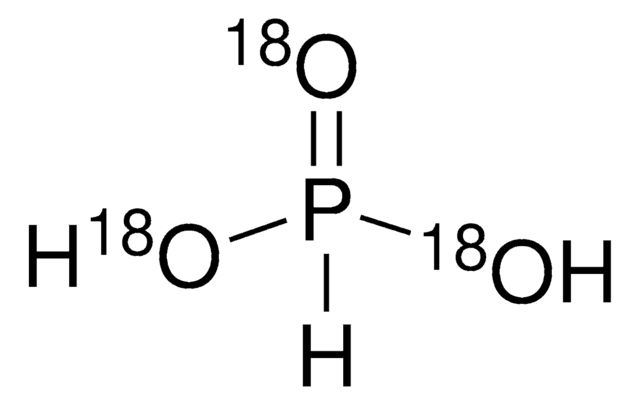M1694
MPPG
≥97% (NMR), solid
Synonyme(s) :
(RS)-α-Methyl-4-phosphonophenylglycine
About This Item
Produits recommandés
Niveau de qualité
Essai
≥97% (NMR)
Forme
solid
Couleur
off-white
Solubilité
DMSO: <4 mg/mL
H2O: <4 mg/mL
Chaîne SMILES
CC(N)(C(O)=O)c1ccc(cc1)P(O)(O)=O
InChI
1S/C9H12NO5P/c1-9(10,8(11)12)6-2-4-7(5-3-6)16(13,14)15/h2-5H,10H2,1H3,(H,11,12)(H2,13,14,15)
Clé InChI
PAONCRJPUQXPRW-UHFFFAOYSA-N
Actions biochimiques/physiologiques
Caractéristiques et avantages
Code de la classe de stockage
11 - Combustible Solids
Classe de danger pour l'eau (WGK)
WGK 3
Point d'éclair (°F)
Not applicable
Point d'éclair (°C)
Not applicable
Équipement de protection individuelle
Eyeshields, Gloves, type N95 (US)
Faites votre choix parmi les versions les plus récentes :
Certificats d'analyse (COA)
Vous ne trouvez pas la bonne version ?
Si vous avez besoin d'une version particulière, vous pouvez rechercher un certificat spécifique par le numéro de lot.
Déjà en possession de ce produit ?
Retrouvez la documentation relative aux produits que vous avez récemment achetés dans la Bibliothèque de documents.
Articles
Sigma-Aldrich offers many products related to G-protein family glutamate receptors for your research needs.
Sigma-Aldrich offers many products related to G-protein family glutamate receptors for your research needs.
Sigma-Aldrich offers many products related to G-protein family glutamate receptors for your research needs.
Sigma-Aldrich offers many products related to G-protein family glutamate receptors for your research needs.
Notre équipe de scientifiques dispose d'une expérience dans tous les secteurs de la recherche, notamment en sciences de la vie, science des matériaux, synthèse chimique, chromatographie, analyse et dans de nombreux autres domaines..
Contacter notre Service technique








